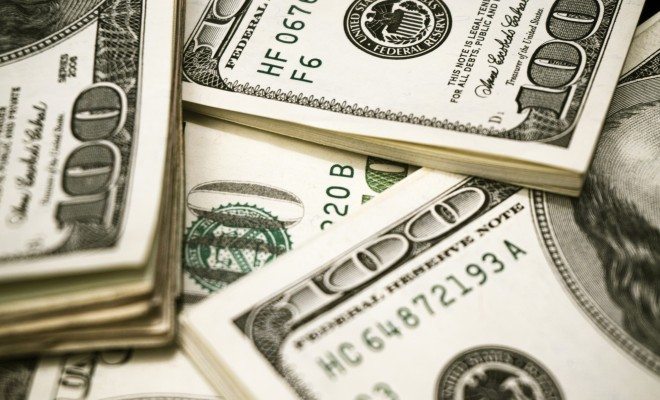 Image courtesy of [Pictures of Money via Flickr]
Image courtesy of [Pictures of Money via Flickr]
News
A Billion Dollar Powerball? It Depends On Your State
Update: We Have Winners
The three winning tickets announced so far were sold in California, Tennessee, and Florida. In these states, the winners will be asked to reveal their name to the public, meaning they are most likely planning out how to escape the country and ensuing media blitz. All three winners will have the luxury of paying no additional state taxes on their jackpot, so they’ll have more money to put towards their great escape.
The Powerball lottery has worked the country’s ‘temporarily embarrassed millionaires‘ into a frenzy with an unprecedented jackpot that estimates put at around $1.5 billion. The next closest jackpot, from a Mega Millions lottery in 2013, lags behind at a measly $590 million.
So how did we reach this astronomical number? It turns out to be more than just pure luck: Powerball actually reduced the already minuscule chance of winning by about 40 percent last summer (from 1 in 175 million to 1 in 292 million). By lowering the chance of a winner in each individual drawing, the jackpot rolls over to the next drawing leading to unprecedented windfalls.

Han Solo won’t let the Powerball changes stop him from his chance at fortune
1. #NotAllStates
Still, even if you refuse to be daunted by how slim the chance of a win is, you’re not going to have the same Powerball experience in every state or even all states–six states do not participate in the national lottery. In many states such as Utah, gambling is illegal, which bars stores from even selling tickets. For others, like Nevada and Mississippi, the lottery is seen as competition for the states’ well-established casinos. Residents of those states, plus Alabama, must visit neighboring states to purchase their tickets. For the remaining residents without access to Powerball–Hawaiians and Alaskans–a visit to another state isn’t an easy option.
So, if you’re in one of the remaining 47 states and territories (including D.C. and the Virgin Islands) you’re able to buy a ticket. The trouble is, even then you’ll have a different lottery experience depending on where you purchase your ticket.
2. Staying Anonymous
One much-heralded piece of advice from former winners is “Don’t tell anyone you’ve won. Anyone.” While a brief moment of celebrity may seem appealing, the intense media scrutiny as well as relatives, friends, and acquaintances coming out of the woodwork for their piece of the pie are enough to drive any winner crazy. Only six of the participating states and territories allow winners to remain anonymous: Delaware, Kansas, Maryland, North Dakota, Ohio, and South Carolina. For other states, winners’ names and hometowns are a matter of public record.
Importantly, these rules apply to the place where you purchase your ticket, not your state of residence. That means that if you really do believe in your lucky numbers, it may be worth visiting another state to buy your tickets, lest you become an unwitting overnight sensation.
3. The Money

A representation of the winner’s first day with their money, even after taxes.
Lottery winners have the choice between a lump-sum payment, or an annuity paid out over 30 years. The lump-sum is cut down from the advertised billion-plus to $930 million, and that’s before taxes. Factor in the two taxes you’ll have to pay on this total–a federal tax of 25 percent and additional state taxes.
Your winnings will also look a lot different depending on where you live because state tax laws on lottery winnings vary widely. Your lump-sum total could wind up anywhere from $615,474,000 in New York to $697,500,000 in California (New York taxes 8.82 percent while California has no tax on lottery winnings). If you decide to take the annuity a ticket purchased in a high-tax area like Washington, D.C. would net you a yearly payment of $33,250,000, while a ticket from a tax-free lottery haven like Texas earns you $37,500,000 each year. California and Texas are joined by Wyoming, Washington, Tennessee, South Dakota, Puerto Rico, Pennsylvania, New Hampshire, Florida, and Delaware.
This means that if you’re looking to maximize profits while staying anonymous, buying your lottery tickets in Delaware is your best bet. However, if you’re really looking to be smart about it, the best option is to not buy a lottery ticket in the first place.








Comments